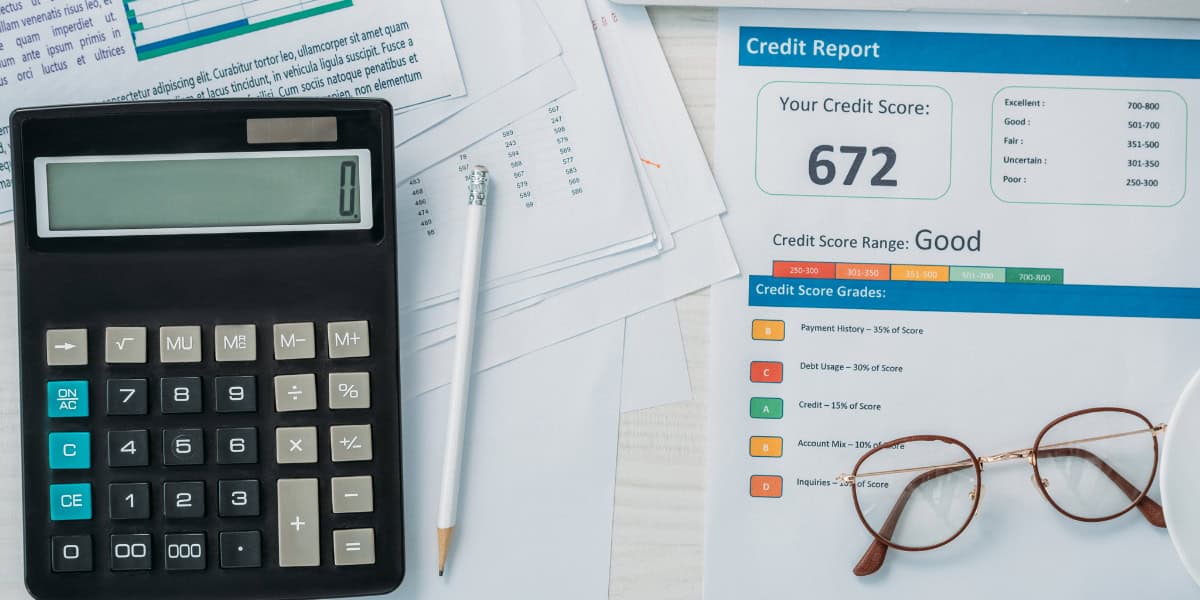Just like the mythical phoenix rising from the ashes, your financial well-being can be reborn with the right information. You might not realize it, but accessing your credit reports for free is a straightforward process that can empower you. By knowing how to navigate the official channels, you can keep tabs on your credit health and catch potential issues early. But what steps do you need to take, and what resources are at your disposal? Understanding these key elements can make all the difference in maintaining your financial security.
Understanding Credit Reports
A credit report is a detailed record of your credit history, including your borrowing and repayment habits, which lenders use to assess your creditworthiness.
It typically includes information about your credit accounts, payment history, outstanding debts, and any public records like bankruptcies.
Understanding your credit report is vital, as it can impact your ability to secure loans, credit cards, or favorable interest rates.
You’ll want to check for accuracy, as errors can negatively affect your score. If you notice discrepancies, it’s important to dispute them promptly.
AnnualCreditReport.com
To access your free credit reports, you can visit AnnualCreditReport.com, the only authorized website that allows you to request them from the three major credit bureaus.
It’s straightforward—just fill out a simple online form. You’ll need to provide some personal information, like your name, address, Social Security number, and date of birth. This helps verify your identity.
You can request one report from each bureau every 12 months, so plan accordingly. If you’re concerned about identity theft, consider spreading your requests throughout the year.
After submitting your request, you’ll receive your reports directly online. Regularly checking your credit reports helps you stay informed and catch any discrepancies early.
Don’t miss this opportunity to manage your credit health!
Credit Reporting Agencies
Understanding the role of credit reporting agencies is vital for managing your credit effectively.
These agencies—Equifax, Experian, and TransUnion—collect and maintain your credit history, which includes your borrowing and repayment behaviors. They compile this information into credit reports, which lenders use to assess your creditworthiness.
By monitoring your reports, you can identify any inaccuracies or fraudulent activities that might harm your credit score. Each agency may have slightly different information, so it’s important to check all three reports regularly.
This way, you can make certain your credit profile is accurate and up to date. Remember, understanding these agencies helps you take control of your financial health and make informed decisions about borrowing.
State-Specific Free Reports
Many states offer additional ways to access free credit reports, allowing you to stay informed about your financial standing.
For example, some states provide consumers with an extra free report each year in addition to the annual report mandated by federal law. Check your state’s regulations to see if you qualify for these additional reports.
In some states, you may also be able to request a free credit report if you’ve been denied credit or other financial services. It’s important to stay updated on your rights and options.
By leveraging these state-specific opportunities, you can better monitor your credit and address any inaccuracies, ensuring your financial health remains intact.
Don’t miss out on these valuable resources!
Using Credit Monitoring Services
How can credit monitoring services help you keep an eye on your credit report and protect your financial health?
These services track your credit information in real-time, alerting you to significant changes like new accounts or inquiries. This immediate feedback allows you to spot potential identity theft early, giving you a chance to act quickly.
Many credit monitoring services also provide access to your credit score and offer tips for improving it. Plus, they often include identity theft protection, adding an extra layer of security.
By using these services, you’ll stay informed and empowered to make better financial decisions.
In short, credit monitoring can be a valuable tool in maintaining your credit health and safeguarding your financial future.
Requesting Reports via Mail
To request your credit reports via mail, you’ll need to complete a simple form and send it to the appropriate credit bureau. You can find the form on each bureau’s website or by calling them directly.
Be sure to provide your personal information, like your name, address, Social Security number, and date of birth, to verify your identity.
Once you’ve filled out the form, mail it to the designated address for each bureau—Equifax, Experian, or TransUnion. It’s a good idea to send your request via certified mail for tracking purposes.
After a few weeks, you should receive your credit reports in the mail, allowing you to review your financial history without any cost.
Reviewing Your Credit Report
Once you’ve received your credit reports, take the time to carefully examine each section for accuracy and any potential errors.
Start with your personal information, making sure your name, address, and Social Security number are correct.
Next, review your account history, checking for any accounts you don’t recognize or outdated information.
Pay attention to payment history, as missed payments can greatly impact your score.
Look over inquiries and verify they’re legitimate.
Finally, check your credit limits and balances to verify they match your records.
If you take this step seriously, you’ll have a clearer understanding of your credit health and be better prepared for any necessary actions in the future.
Disputing Errors on Reports
Many people find errors on their credit reports, and disputing these inaccuracies is vital to maintaining a healthy credit score.
If you spot a mistake, like an incorrect account balance or unfamiliar account, act quickly. Start by gathering supporting documents that prove your claim.
Next, contact the credit reporting agency, either online or by mail, and provide them with the details of the error along with your evidence. They’re required to investigate within 30 days.
If they find the error, they’ll correct it and send you an updated report. If they don’t agree with you, you can add a statement to your report explaining your side.
Keeping your credit report accurate is essential for your financial future.
Frequently Asked Questions
How Often Can I Request My Free Credit Report?
You can request your free credit report once a year from each of the three major credit bureaus: Experian, TransUnion, and Equifax.
That means you can access up to three reports annually, one from each bureau.
If you’re keeping an eye on your credit, it’s a good idea to stagger your requests throughout the year.
This way, you can monitor any changes and guarantee your information stays accurate and up-to-date.
Are There Any Fees Associated With Credit Report Requests?
When it comes to checking your credit report, it’s like a rejuvenating dip in the pool—invigorating and free of charge!
Generally, you won’t face any fees for requesting your credit report from the major agencies.
However, if you seek additional services, like credit monitoring or scores, those might come with a price tag.
So, keep your eyes peeled for any extras that could cost you.
Enjoy your financial insights without worry!
Can I Get My Credit Report in a Different Language?
Yes, you can get your credit report in a different language, but it depends on the provider.
Many services offer translated versions or assistance in multiple languages.
You should check with the credit bureau or service you’re using to see what options they provide.
If they don’t offer a translation, consider asking for help from someone who speaks the language to guarantee you understand the information accurately.
What Should I Do if I Can’t Access My Report Online?
If you can’t access your report online, don’t worry!
Start by checking your internet connection and trying a different browser.
If that doesn’t work, clear your cache and cookies, then attempt to log in again.
If you’re still having trouble, contact the customer support of the credit reporting agency directly.
They can help you troubleshoot the issue or guide you on how to obtain your report through alternative methods.
Do Credit Reports Include My Credit Score?
When you peek into your credit report, it’s like opening a book filled with your financial history. However, it doesn’t include your credit score. Instead, it details your credit accounts, payment history, and outstanding debts.
Think of your credit report as a map, guiding lenders through your credit journey, while your credit score acts as a snapshot of your trustworthiness at a glance.
Conclusion
In the journey of financial health, your credit report is your map.
By regularly checking it, you can navigate potential pitfalls and steer clear of identity theft.
Remember, accessing your free reports is as easy as a click at AnnualCreditReport.com or a simple request in the mail.
So, keep your eyes peeled, stay informed, and don’t hesitate to dispute any errors.
With this knowledge, you hold the compass to your financial future.

